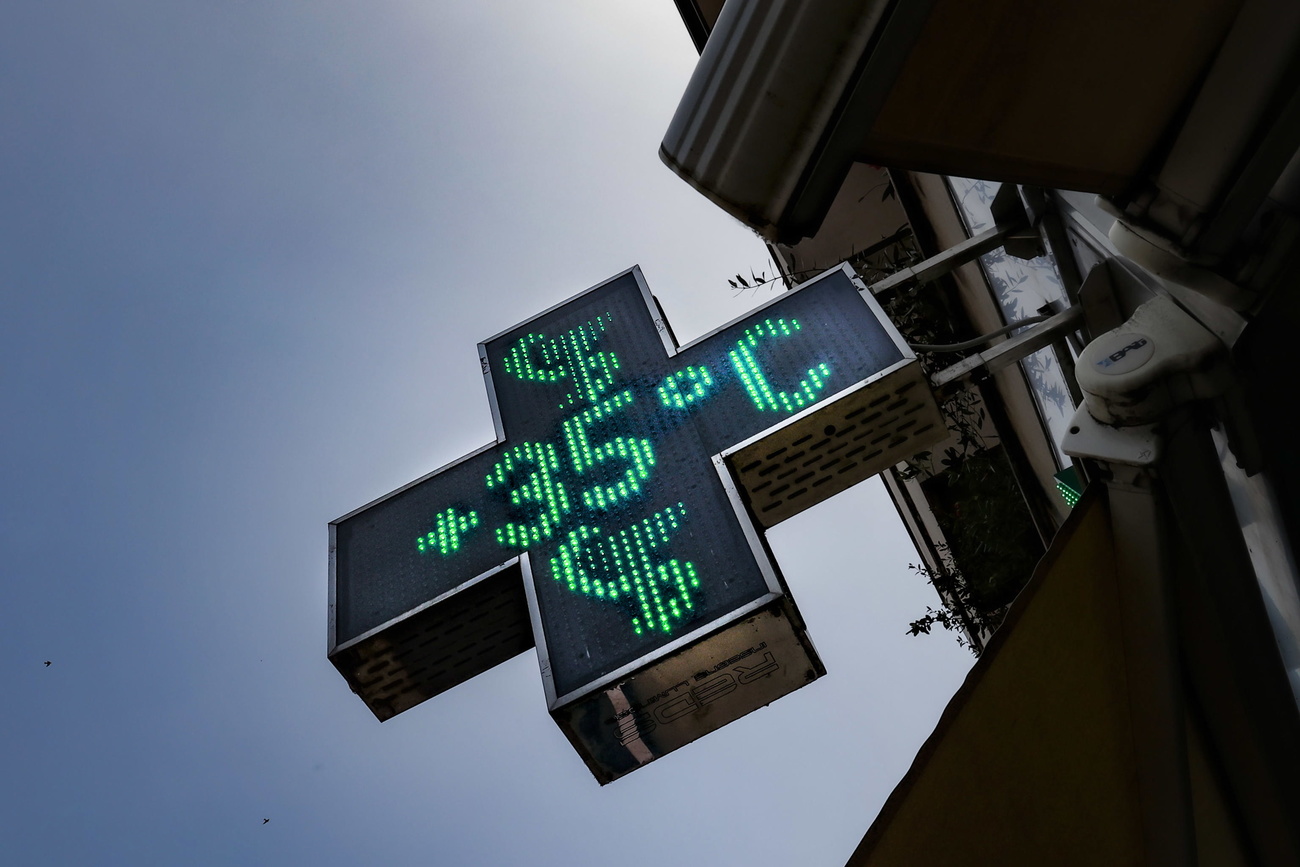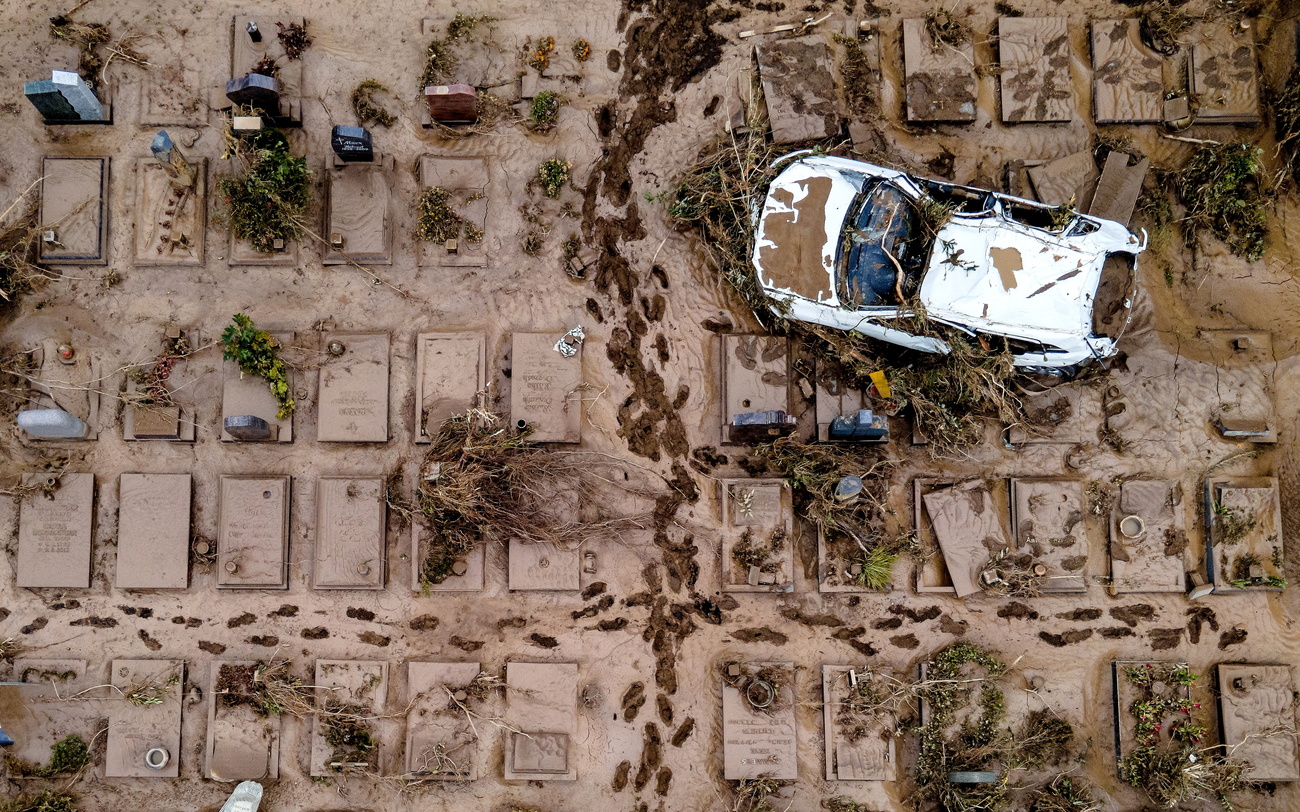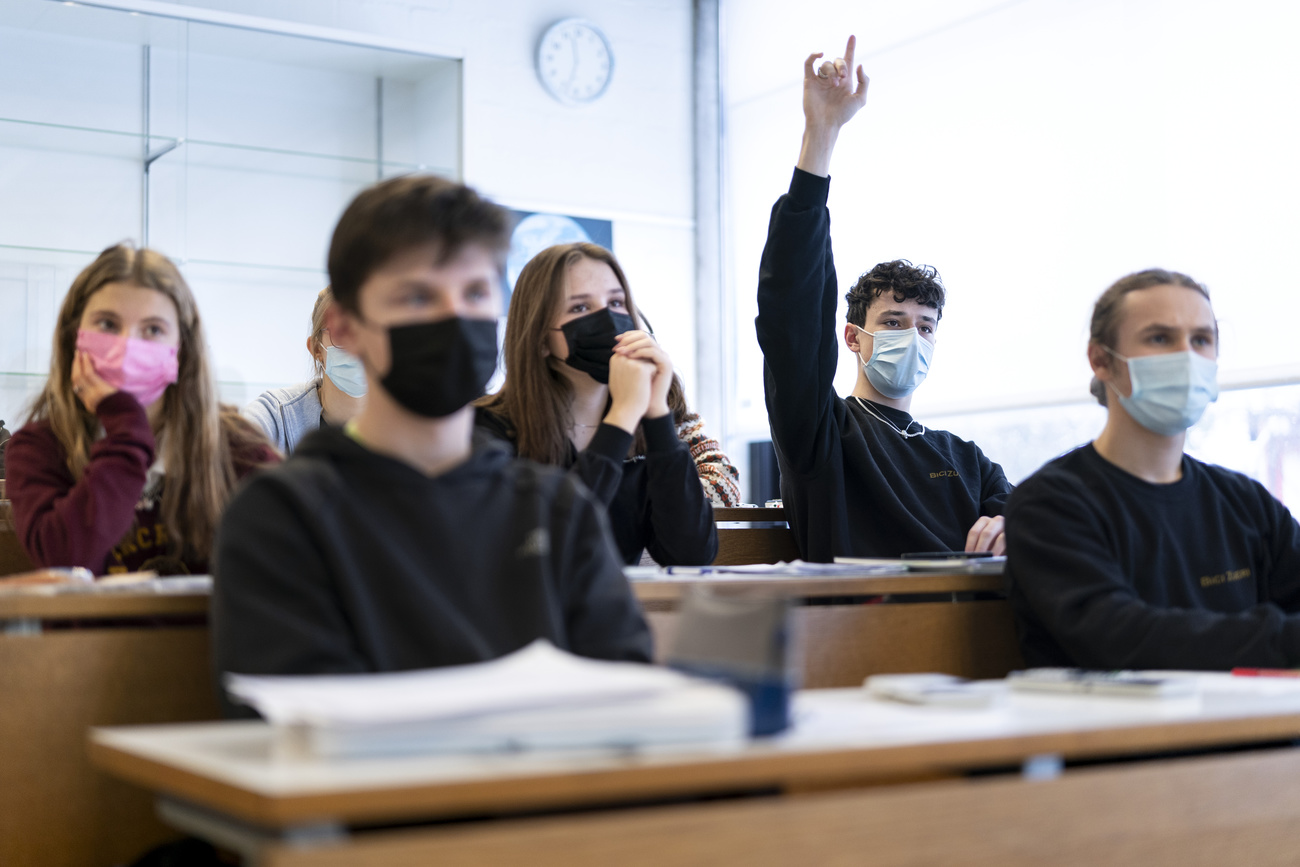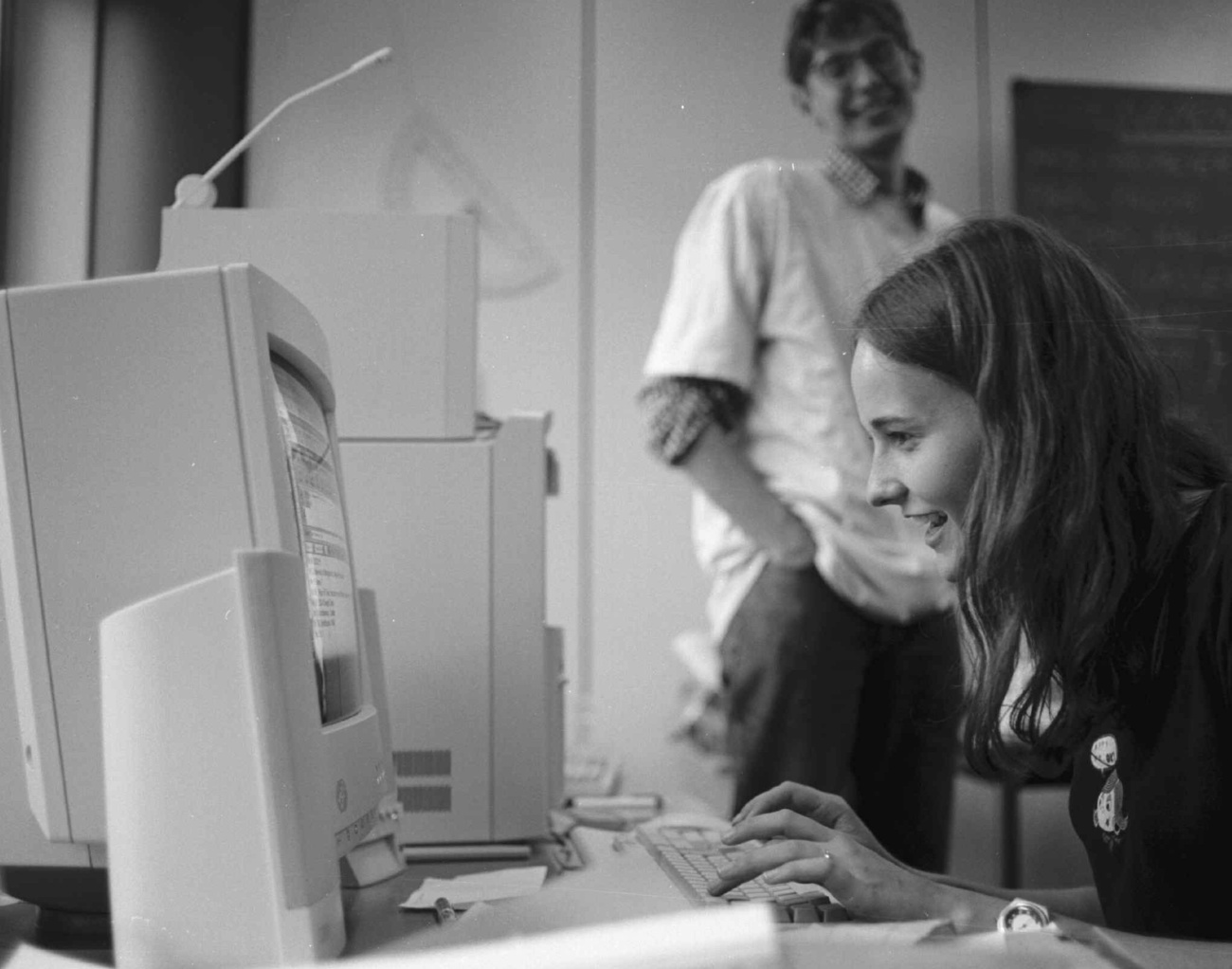

Switzerland Today
Greetings from Bern,
In today’s briefing: Swiss editorialists are variously dismayed about the UN’s climate report, and Covid case numbers are making the news again. Sorry to not bring you more cheery updates, but there’s always tomorrow…

Deep dive – the climate question
Swiss newspapers had a collective hangover on Tuesday after yesterday’s publication of the latest IPCC climate study. The “code red for humanity”, as UN boss António Guterres called it, wasn’t easy reading for editorialists: “no-one is immune from the suffering of climate change”, Le Temps wrote on Tuesday, listing the floods, extreme temperatures, and deaths seen across the world in recent months. “Climate change is no longer an abstract, futuristic threat,” wrote the Neue Zürcher Zeitung. “It has arrived and it is affecting almost all regions on the planet”.
Unlike a hangover, however, the climate doesn’t get better if you wait, scientists say (those scientists!). Many of them, like Sonia Seneviratne, are impatient. Seneviratne, at least, is clear: we need to stop using fossil fuels asap, she tells the Tages-Anzeiger. We also need to drop the idea that we can reduce emissions gradually, then invent technologies (e.g. carbon capture) to fix things in the future, she says. It sounds like shock therapy, but Seneviratne doesn’t think it’s unrealistic: “in 2019, you would have said it was unimaginable to put lockdowns in place in various countries”.
But there’s only a certain amount of fossil fuels citizens themselves can cut. And so, the ball is with politicians. Internationally, the next big rendezvous is in Glasgow in November, when signatories of the Paris Climate Accord meet to define targets. Implementing such targets, however, remains a national affair, and a divisive one. Reflecting the disarray, Swiss political parties have reacted variously to the IPCC report: the left-wing social democrats emphasised the so-called Glacier Initiative; the centre-right Liberal Radicals want to re-jig the CO2 law again; the right-wing People’s Party, according to the Tages-Anzeiger, said nothing.
In the end, it will largely be up to Environment Minister Simonetta Sommaruga to devise a plan that can somehow suit political parties and voters – most of whom agree that reducing emissions is necessary, according to a recent survey, but most of whom don’t want to pay the price for such a reduction – according to June’s CO2 law defeat. A sign of the government’s appetite for action may already come tomorrow, when it will discuss its position on the Glacier Initiative…

News – back to school
As classes begin again in Switzerland after the summer break, teacher organisations want more measures to protect their health and that of their students. One idea would be a wider implementation of mass testing regimes. Another would be CO2 measuring devices in classrooms, to measure air quality. As with other professions in Switzerland, it’s not mandatory for teachers to get vaccinated. As for students, those over the age of 12 can get the jab from either Pfizer/BioNTech or Moderna.
Almost 2,000 new cases of Covid-19 were recorded in Switzerland on Tuesday, marking an 80% jump compared to seven days ago. Last week, the 1,000-mark was breached for the first time in months. However, although the hospitalisation rate is also increasing, it remains low, as does the death rate. On Wednesday, the government will meet to discuss the situation and the possibility of lifting more restrictions, which Health Minister Alain Berset hinted at in the press at the weekend.
A UBS report has found an increased risk of a property bubble in the Swiss housing market. According to the bank’s “real estate bubble index”, residential property prices rose 5.4% in the second quarter of 2021, the largest increase in eight years. While the average price of residential property was 6.5 times annual income before the pandemic, it is now estimated at 7.1 times annual income. However, the report expects a post-Covid economic recovery to decrease the index below the “risk zone” by the end of 2021.

Blast from the past – Google and God
It’s been 30 years, give or take, since the World Wide Web was first sketched by researchers at CERN in Geneva. Three decades later, writes Hans-Ulrich Gumbrecht in Tuesday’s NZZExternal link, the shift in how we manage and view information is unprecedented. From a world where God (or later, books) was the source of all knowledge, “revealed” to mortals in dribs and drabs, we know live in a world where we – via the Internet – are the source of all knowledge, in bits and bytes. For Gumbrecht (a professor at Stanford, where new God Google was spawned), humans have yet to fully understand what this revolution means – for daily knowledge, for how we see ourselves, and for how schools operate.
What about the CERN pioneers? Sir Tim Berners-Lee has said he’s not ecstatic about some of the darker sides of the Internet’s development. Today, as the Tribune de Genève reports, CERN has highlighted (as part of a series of anniversary celebrations) the first ever webpage, which went live just over 30 years ago, on August 6, 1991. What does this statement of intent look like? Pretty basic stuff, but in fairness, not all that different to what we see these days; take a look hereExternal link. Three decades later, the Tribune de Genève writes, there is an estimated two billion websites online.
More

In compliance with the JTI standards
More: SWI swissinfo.ch certified by the Journalism Trust Initiative


























